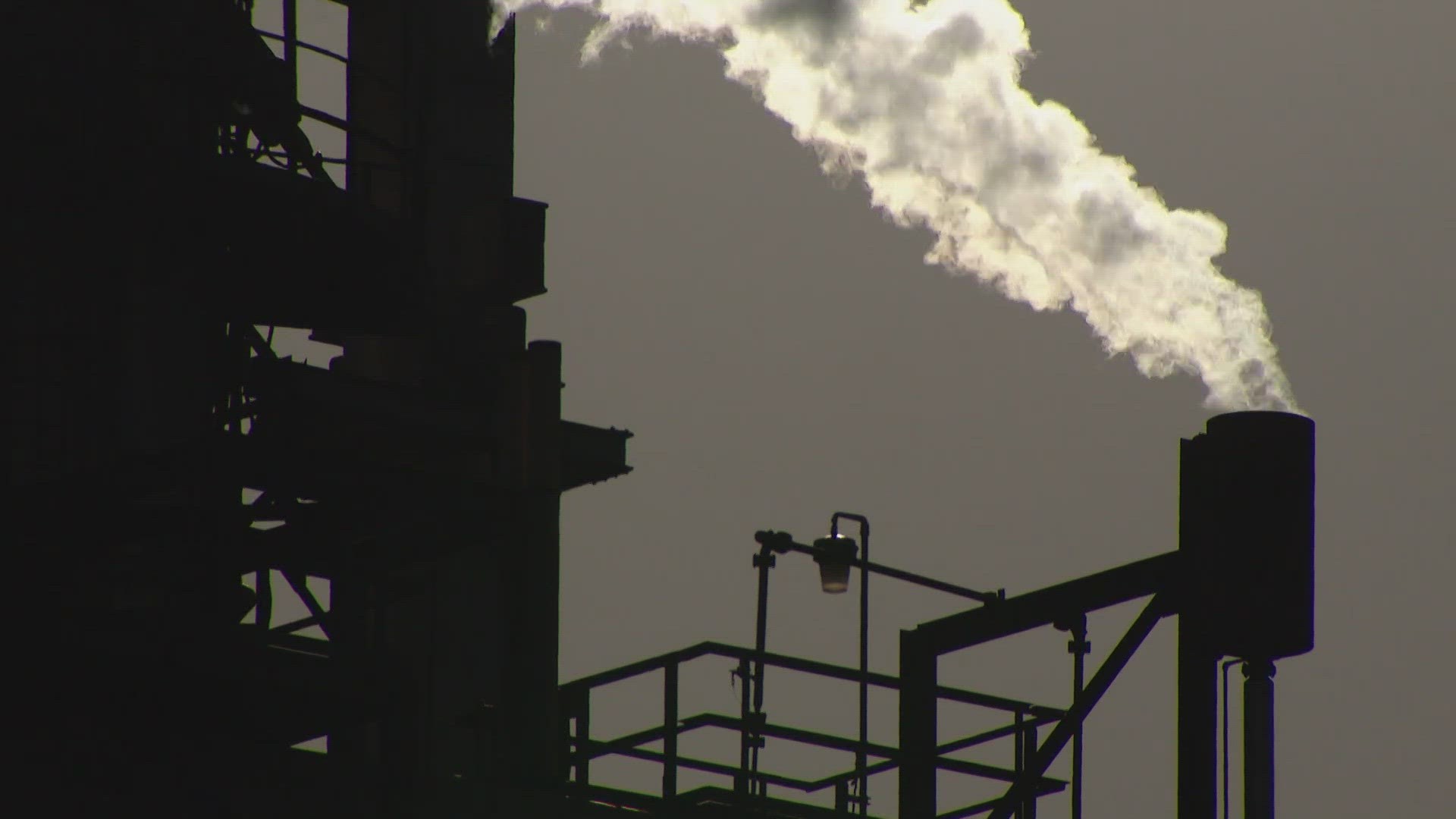COMMERCE CITY, Colo. — The Suncor refinery in Commerce City broke state health department permit rules an average of once every three days over the past three months, a 9NEWS analysis of Suncor environmental reports indicates.
From Dec. 15 to March 15, Suncor reported 37 days where the refinery exceeded its allowable levels of chemicals like hazardous hydrogen sulfide and cancer-causing benzene. The exceedances sometimes lasted hours or days.
"I think it’s crazy because, I mean, if they’re breaking the rules, I think it’s them doing damage to our own health of the community," said Liliana Arreguin, who lives in a Commerce City neighborhood in the shadow of the refinery. "They’re breaking the rules and they don’t really care about it."
Arreguin has asthma, as do her siblings. She believes emissions from the refinery make her condition worse.
"It gets a little hard to breathe sometimes," she said.
Suncor has said it follows state health guidelines -- and said its own air quality monitoring stations reported it "did not detect any levels above the acute health reference guidelines" any of the times it broke the permitted levels of emissions.
"We are making improvements and fixing equipment in the facility right now," Suncor spokesperson Loa Esquilin Garcia said on Monday.
She said one of the three plants within the facility was back online and the two others were due to be started up "in the coming days."
A spokesperson for the Colorado Department of Public Health and Environment said the emissions issues began with a partial shutdown that occurred after a fire around Christmas. At the time, Suncor blamed extremely cold temperatures for the issue. It has been in the process of starting back up its refinery capability in the weeks since.
In the past, CDPHE has fined Suncor for emissions violations, most notably in 2020 when it issued a historic $9 million fine against the company. A spokesperson said the department is not ready to proceed with similar action for this winter's permit exceedances yet.
"Any violations, enforcement actions, and penalties would be determined once these reports and investigations are complete," spokesperson Leah Schliefer said.
Regardless of the state health department's actions, Arreguin believes change is needed at the facility.
"If nothing can be done about the [refinery] going away, maybe reducing the amount of chemicals that are going into the environment," she said. "Because it’s just compromising people’s health in the community."
SUGGESTED VIDEOS: Latest from 9NEWS

